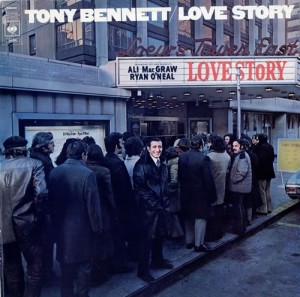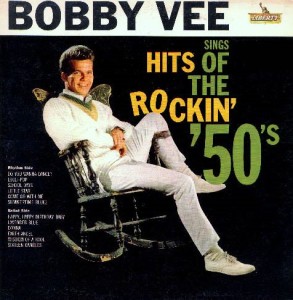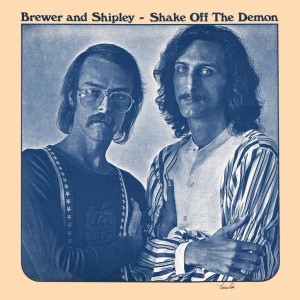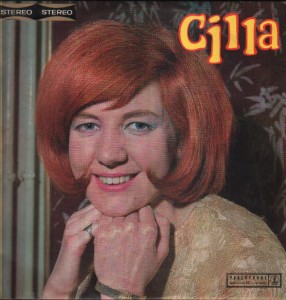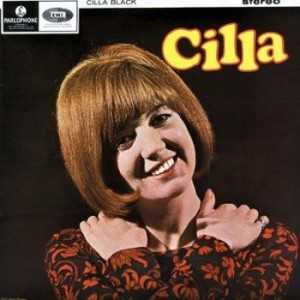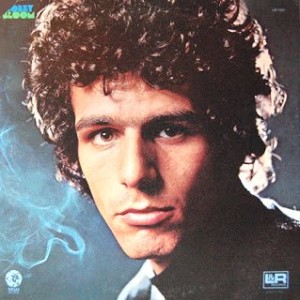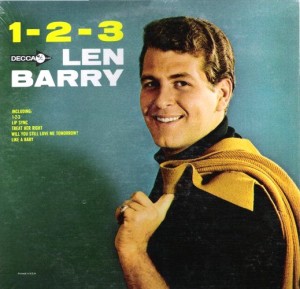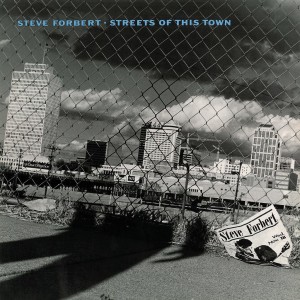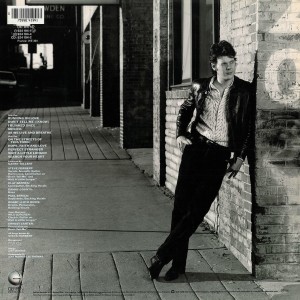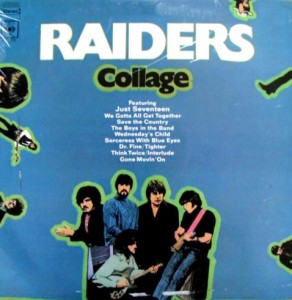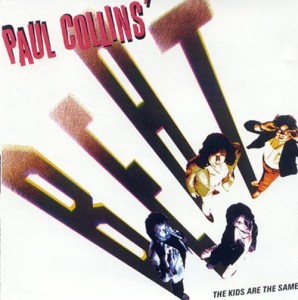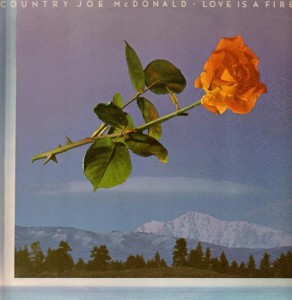"Bennett, born 1926, is the last of the great male trad pop singers".
I said that in another comment on Tony Bennett and that is a great way to start any comment.
That, followed by "and he is still recording and touring and is a living legend".
Read my other comments for musical background and impact.
He never entered into the public consciousness as perhaps, Sinatra, Crosby or Martin because he never worked in film extensively but his vocal, phrasing, control and emotion was admired by all trad pop singers.
The guy is truly amazing.
Not every song Bennett does works but he makes a song sound, at the very least, pleasant. He could sing the phone book and it would be good. He is the master craftsman.
But, when he hits on a song that is perfectly in tune with what he wants and believes there is magic and he transcends the music.
His voice is distinctive and familiar. The role he takes on in a song is totally convincing. The broken hearted lover, the friend giving advice, the young man who has found love, the older man who has found love, the parent looking at his child, the beloved relative giving fatherly advice. They are not just arbitrary roles for each song but rather an extension of his personality, at different times in his life. He never wrote a song, but through the selection and his approach to them they become autobiographical.
With that in mind I have never had a problem approaching a Tony Bennett album and I especially like his late 60s and early 70s material though it's not his most well regarded period.
This album is a strange though. Clearly it has been designed to cash in on the big hit film "Love Story" with Ryan 'Neal and Ali McGraw from 1970 (look at the sleeve – a bad Photoshop before Photoshop was invented), and I assume Andy Williams big hit of the theme song from 1971 but the album could be called "Bennett does Broadway and the Movies".
The 70s tracks are all from recent films or stage productions whilst the rest are lifted from Bennett albums and singles from the 60s.
The recording date breakdown:
12/03/1970 Love Story (Where Do I Begin?)
01/25/1971 Tea For Two
01/25/1971 I Want To Be Happy
01/25/1971 Individual Thing
09/30/1970 I Do Not Know A Day I Did Not Love You
10/16/1967 They Can't Take That Away From Me
09/17/1963 When Joanna Loved Me
11/26/1966 Country Girl
12/28/1965 The Gentle Rain
03/16/1962 Soon It's Gonna Rain
09/11/1963 A Taste Of Honey
09/30/1970 I'll Begin Again
The album hangs together because the new songs are well done and the older songs are chosen because they were strong but it would have been more successful (as an album) if a few other recent songs had been done at the sessions.
Tracks (best in italics)
- Love Story – (Where Do I Begin?) – (Carl Sigman, Francis Lai) – from the film "Love Story" – the film was a monster hit. A cover of the theme song (which has been covered many times), by Andy Williams which was a hit in 1971 (#9 on the Billboard Hot 100 and #1 on the easy listening chart for four weeks, in addition to #4 on the UK Singles Chart). I'm not sure if Williams actually recorded (as opposed to released) his version before Bennett but Bennett's version is better. His vocal is control with just the right crack around the edge to give the song emotional power. Sure, everyone can sing, but not everyone is a singer. http://en.wikipedia.org/wiki/Love_Story_(1970_film)
- Tea For Two – (Vincent Youmans, Irving Caesar) – from the often revived musical production and Broadway show "No No Nanette" which dates back to the 1920s. Tony controls the song nicely. It has been often heard and is a bit coy but it works. http://en.wikipedia.org/wiki/Tea_for_Two_(song)
- I Want To Be Happy – (Otto Harbach, Vincent Youmans, Irving Caesar) – another song from "No No Nanette" ….there was a big Broadway revival of the sho released later in 1971 . Perhaps this is the reason for recording the song. It still it works.
- Individual Thing – (Jule Styne, Bob Merrill) – from the musical production "Prettybell" which was also released in 1971. The musical is very contemporary – its central character is a Southern woman who, after her abusive law officer husband has died, turns to alcohol and sex, allowing herself to be raped and becoming a nymphomaniac prostitute, before becoming institutionalized. A romantic musical comedy it's not. http://en.wikipedia.org/wiki/Prettybelle
- I Do Not Know A Day I Did Not Love You – (Richard Rodgers, Martin Charnin) – from the Broadway Musical "Two by Two" released in 1970 with Danny Kaye in the lead. Another contemporary musical about Noah and the great flood but with refences to ecology, the bomb and the generation gap. http://en.wikipedia.org/wiki/Two_by_Two_(musical)
- They Can't Take That Away From Me – (George Gershwin, Ira Gershwin) – The song was first done by Fred Astaire in the 1937 film "Shall We Dance". A beautiful song, more jazzy than the Astaire version.
- When Joanna Loved Me – (Robert Wells, Jack Segal) – This is Bennett's song from 1964. Though not a big, big hit Bennett loved the song so much he named his daughter after it. Scott Walker did a beautifully Baroque version in 1967. Vocally lush.
- Country Girl – (Robert Farnon) – Canadian Fardon wrote the song as a potential for the 1966 Eurovision (for England). Bennett's version comes from the 1967 album "Tony Makes It Happen!"
- The Gentle Rain – (Luiz Bonfa, Matt Dubey) – from mthe (now) obscure film from 1966 starring Christopher George and Lynda Day George about lovers in Rio. Naturally enough the great Brazilian guitarist Bonfa did the music (with Eumir Deodato). This song was originally from Bennett's 1966 album, "The Movie Song Album". Great guitar by Bonfa, very gentle as is the song just like, errrr gentle rain.
- Soon It's Gonna Rain – (Tom Jones, Harvey Schmidt) – from the 1960 musical comedy "The Fantasticks". http://en.wikipedia.org/wiki/The_Fantasticks
- A Taste Of Honey – (Ric Marlow, Bobby Scott) – A minor hit when released in 1964 the song was originally released on Bennett's 1964 album "The Many Moods of Tony". The song was written for the 1960 Broadway version of the 1958 British play "A Taste of Honey" The song both in vocal and instrumental modes has been covered many times (Including by The Beatles in 1963. Tony's version is sublime. http://en.wikipedia.org/wiki/A_Taste_of_Honey_(song)
- I'll Begin Again – (Leslie Bricusse) – from the film 1970 film "Scrooge" which was a musical film adaptation of Charles Dickens' classic 1843 story, "A Christmas Carol". Another great cover which is powerful in that Broadway way without being strictly Broadway. http://en.wikipedia.org/wiki/Scrooge_(1970_film)
And …
By it's nature this is patchy but when it's right it's magnificent …. I'm keeping it.
Chart Action
US
Singles
1964 A Taste Of Honey The Billboard Hot 100 #94
1964 When Joanna Loved Me The Billboard Hot 100 #94
Album
1971 Love Story The Billboard 200 #67
England
Singles
—
Album
—
Sounds
Love Story (Where Do I Begin?)
Mp3 attached
Tea For Two
https://www.youtube.com/watch?v=OT84utta5F8
I Want To Be Happy
https://www.youtube.com/watch?v=gUe-LcFGbsw
They Can't Take That Away From Me
Live (with Elvis Costello)
https://www.youtube.com/watch?v=x6uDp5lYPzs
When Joanna Loved Me
Live
https://www.youtube.com/watch?v=NicgV-k2MNI
Country Girl
https://www.youtube.com/watch?v=uk8IlgqOx5E
The Gentle Rain
https://www.youtube.com/watch?v=Jdv7PMibKog
A Taste Of Honey
https://www.youtube.com/watch?v=sGc4DcgAxcc&list=PLA4BA88A1DADF8E33
I'll Begin Again
https://www.youtube.com/watch?v=_6F5TapKAOg
Others
https://www.youtube.com/watch?v=Orqgv9LCsvE (with Frank Sinatra)
https://www.youtube.com/watch?v=MZMsqdD7FpM (with Dean Martin)
https://www.youtube.com/watch?v=bTPpe64jlWQ (with Dean Martin)
https://www.youtube.com/watch?v=IoV0q_q6VCk (with Andy Williams)
https://www.youtube.com/watch?v=NosKQSkzh54 (and Willie Nelson)
https://www.youtube.com/watch?v=_OFMkCeP6ok (with Amy Winehouse)
https://www.youtube.com/watch?v=ZPAmDULCVrU (with Lady Gaga))
Review
—
Bio
http://en.wikipedia.org/wiki/Tony_Bennett_discography
Website
Trivia
- Credits : Arranged By – Dick Hyman (tracks: B4, B5), Marion Evans (tracks: B2), Marty Manning (tracks: A1, B1), Ralph Burns (tracks: A2, A3, A4), Torrie Zito (tracks: A5, A6, B6) , Conductor – Dick Hyman (tracks: B4, B5), Marion Evans (tracks: B2), Marty Manning (tracks: A1, B1), Ralph Burns (tracks: A2, A3, A4), Torrie Zito (tracks: A5, A6, B6) , Guitar – Luis Bonfa* (tracks: B3) , Producer – Ernie Altschuler (tracks: B1, B5), Howard A. Roberts (tracks: A6, B2), Teo Macero
- Full sessions: Tony Bennett (ldr), Ralph Burns, Marion Evans, Marty Manning, Peter Matz, Ralph Sharon, Torrie Zito (con, a), Dick Hyman (con, a, or), Johnny Mandel (con), Luiz Bonfa (a, g), Ralph Sharon Trio (acc), Phil Bodner, Pete Fanelli, Romeo Penque, Sol Schlinger, William J. Slapin, Stanley Webb (r), Joe Soldo (r, f), Bobby Tricarico (r, ts), Bert Collins, Mel Davis, Al De Risi, Joe Ferrante, Johnny Frosk, Bernie Glow, Bob Hamilton, Joe Newman, Ernie Royal, Joe Wilder (t), Robert Alexander, Sy Berger, Warren Covington, William Elton, Paul Faulise, John Gale, Urbie Green, Dick Hixson, John Messner, Jack Rains, Fred Zito (tb), Jim Buffington, Donald Corrado, Joseph De Angelis, Larry Wechler (frh), Vinnie Bell, Gene Bertoncini, Al Caiola, Barry Galbraith (g), George Duvivier, Milt Hinton (b), John Bunch (p), Gloria Agostini, Corky Hale, Margaret Ross (hrp), Jess Levy, Charles McCraken, George Ricci, Lucien Schmidt, Harvey Shapiro, Alan Shulman, Tony Sophos (vc), Joe Cocuzzo, Sol Gubin, Ronnie Zito (d), Phil Kraus, Phil Kraus (per), Lamar Alsop, Julius Brand, Fred Buldrini, Peter Buonconsiglio, Max Cahn, Bernie Eichen, Paul Gershman, Harry Glickman, Larry Goldman, Mannie Green, Harry Katzman, Harold Kohon, Leo Kruczek, Ray Kunicki, Joe Malin, Marvin Morgenstern, David Nadian, Dave Novales, George Ockner, Gene Orloff, John Pintavalle, Matthew Raimondi, John Rublowsky, Tosha Samoroff, Julius Schachter, Gerald Tarack, Paul Winter (vn), Julien Barber, Al Brown, Selwart Clarke, Harold Colletta, Leon Frengut, Theodore Israel, Emanuel Vardi (vl), Tony Bennett (v) Sessionography: http://www.jazzdiscography.com/Artists/Bennett/Bennett70.php

